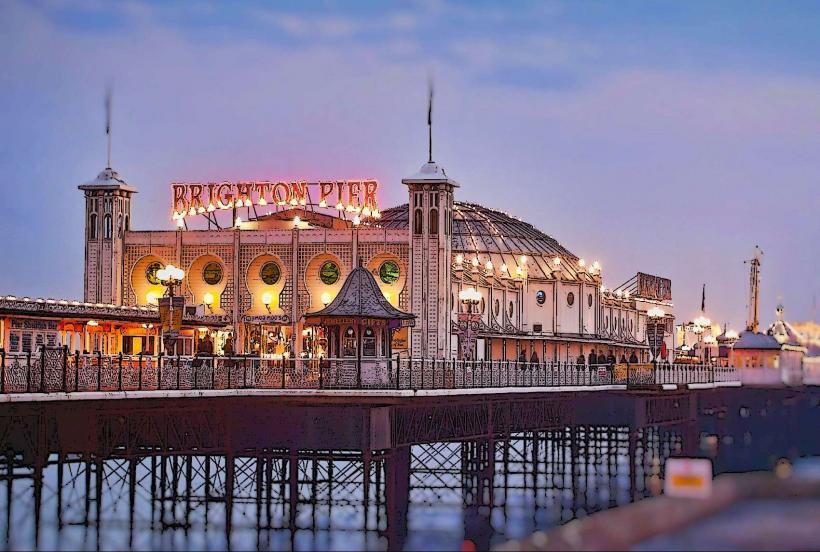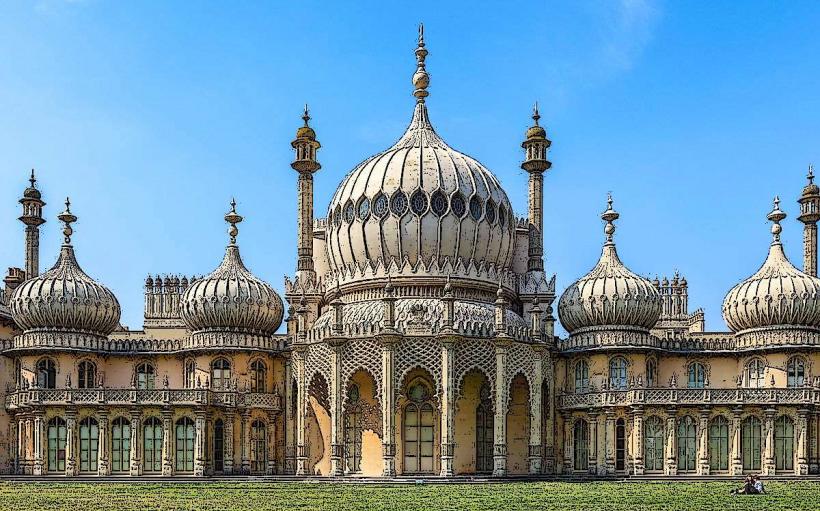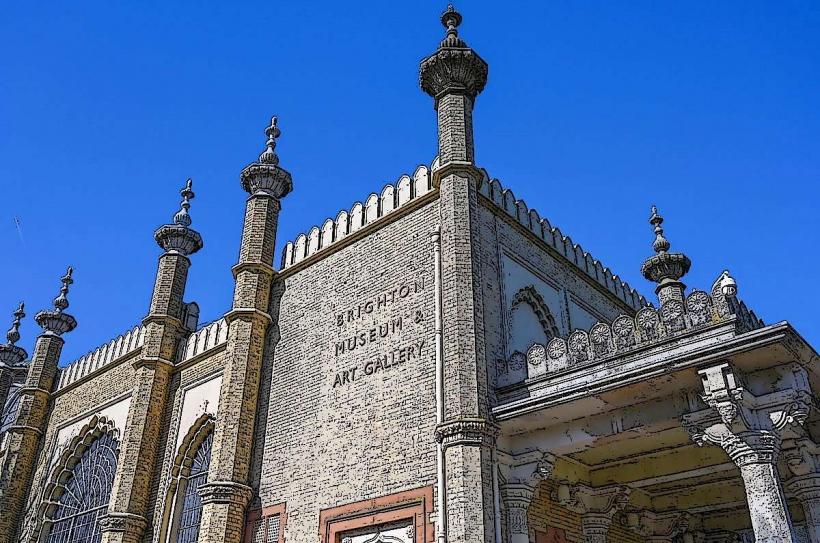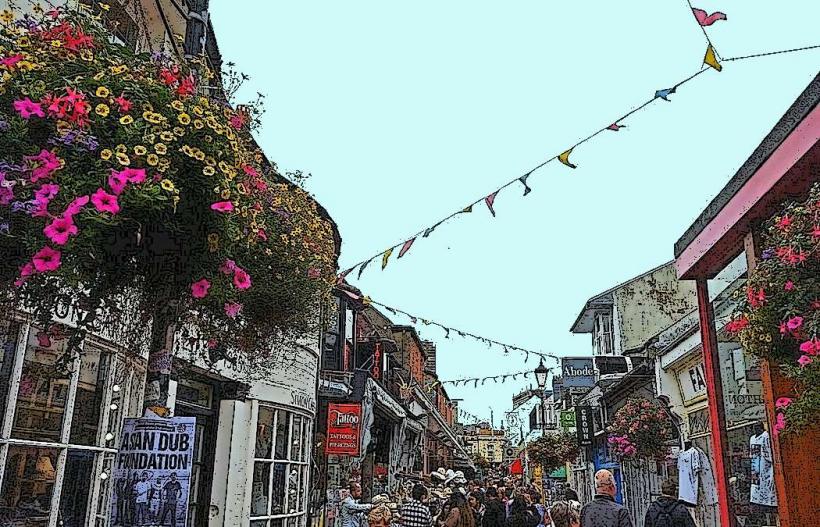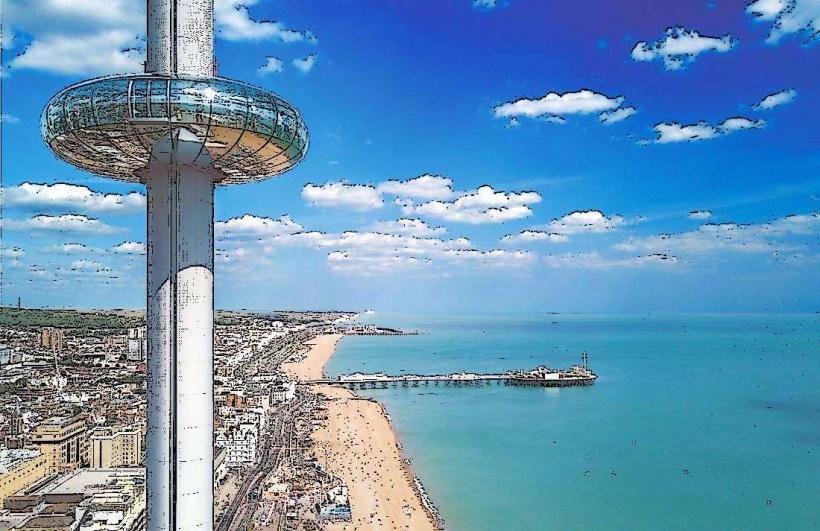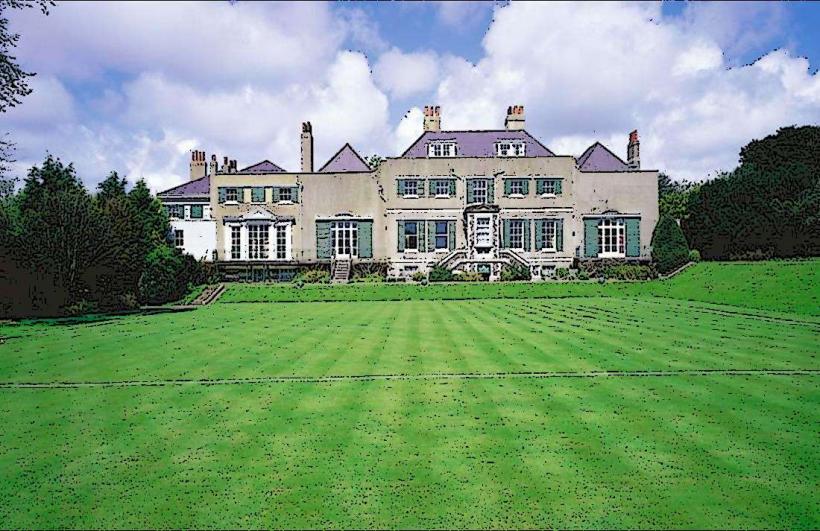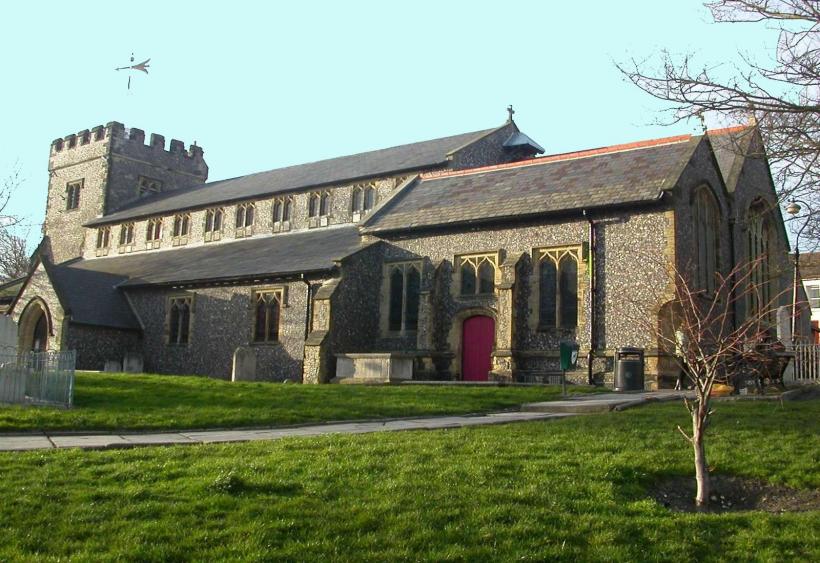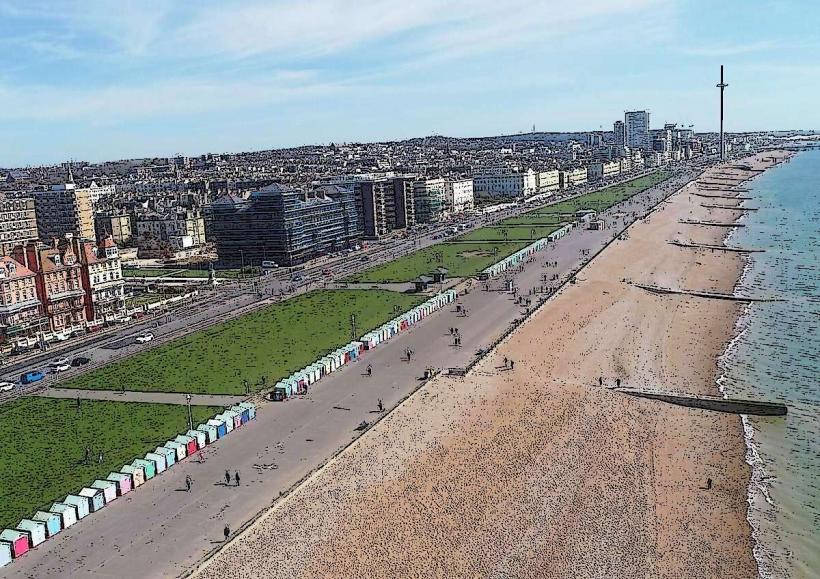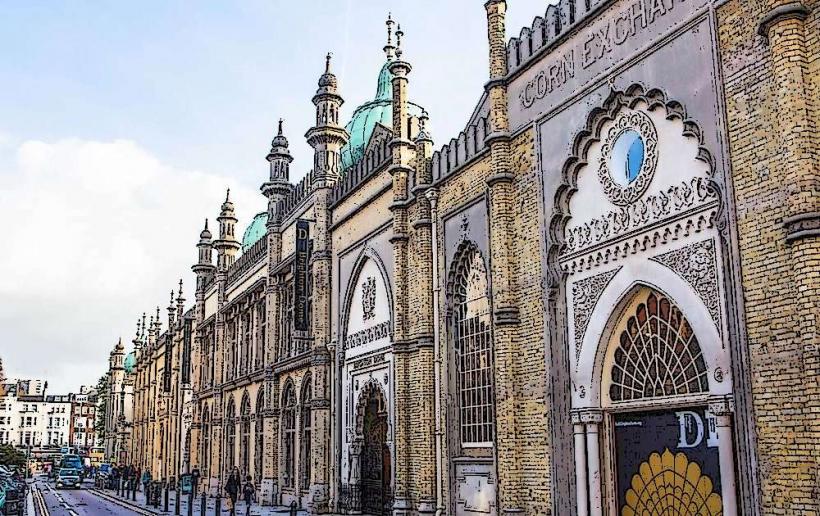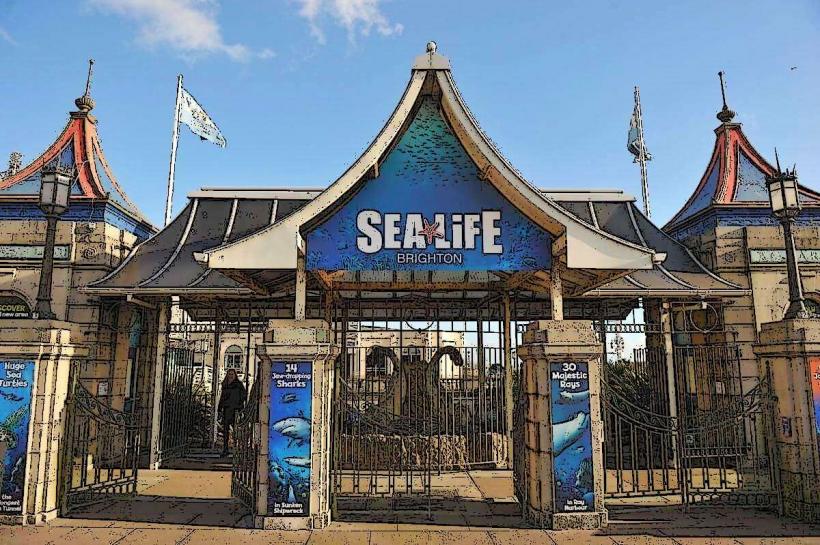Information
City: BrightonCountry: United Kingdom
Continent: Europe
Brighton is a vibrant coastal city located on the south coast of England, in the county of East Sussex. Known for its eclectic mix of culture, history, and natural beauty, Brighton has become one of the most popular tourist destinations in the UK. The city combines a bohemian atmosphere with modern attractions, making it an ideal place for both relaxation and adventure.
1. Geography and Location
- Location: Brighton is located on the south coast of England, along the English Channel, about 47 miles (75 km) south of London.
- Climate: The city has a temperate maritime climate, with mild winters and warm summers. Due to its coastal location, it can be windy, but it enjoys more sunshine than other parts of the UK.
2. History
- Early History: Brighton’s history dates back to the Roman era, although it remained a small fishing village for many centuries. It began to grow during the 18th century when it became a popular spa destination.
- Royal Influence: In the 19th century, Brighton rose to fame when King George IV (then Prince of Wales) built the Royal Pavilion as a seaside retreat. This led to Brighton becoming a fashionable resort for the British elite.
- Victorian Development: Throughout the Victorian period, Brighton grew rapidly as it became a hub for seaside tourism, with the development of piers, promenades, and grand hotels. The arrival of the railway in the 1840s also made Brighton more accessible to tourists from London and beyond.
- Modern Brighton: Today, Brighton is known for its vibrant arts scene, cultural diversity, and progressive attitude, as well as being a popular destination for both domestic and international tourists.
3. Landmarks and Attractions
Brighton offers a diverse range of attractions, blending historical landmarks with modern cultural experiences.
- Royal Pavilion: One of Brighton’s most iconic landmarks, the Royal Pavilion was designed by architect John Nash in the Indo-Saracenic style. The palace was originally built for King George IV and is famous for its exotic, Indian-inspired architecture and lavish interior, complete with opulent decor and beautiful gardens.
- Brighton Pier: Opened in 1899, Brighton Pier is a traditional British seaside pier that features arcades, fairground rides, and a restaurant with stunning views over the English Channel. It remains one of the most popular attractions in the city.
- The Lanes: The Lanes is a maze of narrow, winding streets in the heart of Brighton, lined with independent shops, boutiques, cafes, and restaurants. It is known for its vintage shops, quirky stores, and vibrant atmosphere, making it a perfect area for exploring and shopping.
- Brighton Beach: Famous for its pebble beach, Brighton Beach stretches along the city’s coastline and offers a popular spot for sunbathing, swimming, and seaside activities. The beach is lined with cafes, bars, and restaurants.
- Brighton Museum and Art Gallery: Located next to the Royal Pavilion, this museum houses collections of fine art, fashion, design, and local history. It also features rotating exhibitions of contemporary art and design.
- British Airways i360: The i360 is a 162-meter-high observation tower located on the seafront. Visitors can take a ride in a glass viewing pod for panoramic views of the city, the coastline, and the South Downs National Park.
- Hove Lawns: Adjacent to Brighton Beach, Hove Lawns is a large green space ideal for picnics, relaxation, and outdoor sports. It offers beautiful views of the coast and is often quieter than the main Brighton beach.
- The Brighton Wheel: Though no longer in operation, the Brighton Wheel was once a major attraction, offering a unique vantage point over the city and sea. The spot where the wheel once stood is still a hub for visitors and offers plenty of recreational space.
- Brighton Dome: A historic venue for concerts and performances, the Brighton Dome is housed in a former royal stables and is part of the cultural complex along with the Royal Pavilion and Brighton Museum. It hosts classical concerts, contemporary performances, and comedy shows.
- Seven Dials: A charming area with a village-like feel, Seven Dials is home to independent shops, cafes, and restaurants. It’s a popular area for both locals and tourists, known for its trendy, bohemian atmosphere.
- Devil’s Dyke: Located a short distance from the city, Devil’s Dyke is a deep, wide valley in the South Downs National Park offering stunning views of the surrounding countryside. It’s a popular spot for hiking, picnicking, and enjoying nature.
- Stanmer Park: A large country park located to the north of Brighton, Stanmer Park is a peaceful green space with woodlands, meadows, and beautiful walking trails. The park is also home to Stanmer House, a grand historic building that serves as a popular venue for events and weddings.
4. Culture and Arts
- Theatre and Performance: Brighton is known for its thriving arts scene, with venues like the Theatre Royal, Komedia, and Brighton Dome hosting a range of performances from drama and comedy to contemporary dance and opera.
- Brighton Fringe Festival: One of the largest and most diverse arts festivals in England, the Brighton Fringe Festival takes place annually in May and offers performances, exhibitions, and workshops across the city.
- Brighton Festival: Another major cultural event, the Brighton Festival celebrates the arts in all forms, including theater, music, visual arts, and dance. It features international and local talent and brings together thousands of visitors.
- Street Art: Brighton is known for its street art, with the North Laine and The Lanes areas being hotspots for murals, graffiti, and installations by both local and international artists. The city also has a number of art galleries showcasing contemporary works.
5. Shopping and Dining
- The Lanes: As mentioned earlier, The Lanes is the place for independent boutiques, vintage shops, and jewelry stores. It is also a hub for artisan food and drink, with cafes and bakeries offering local delicacies and international flavors.
- Churchill Square Shopping Centre: Located in the heart of Brighton, this indoor shopping mall offers a range of high street and designer stores, as well as cafes and eateries.
- North Laine: Known for its bohemian vibe, North Laine is home to an array of independent shops, second-hand stores, and quirky shops. The area is also filled with cafes and eateries, offering everything from organic food to international cuisines.
- Brighton’s Food Scene: Brighton has a diverse food scene, with a focus on local, sustainable, and organic produce. Seafood is particularly popular, and there are numerous restaurants serving fresh fish, including The Salt Room and Riddle & Finns. The city also boasts a variety of international cuisines, from Mediterranean to Asian fusion.
- Brighton Open Market: A lively market selling fresh produce, flowers, and local crafts, the Brighton Open Market is a great place for those looking to buy local and organic products, as well as unique gifts and artisan goods.
6. Economy
- Tourism: Brighton's economy relies heavily on tourism, with millions of visitors coming to enjoy the city’s beaches, culture, and attractions every year.
- Creative Industries: The city has a growing reputation as a hub for creative industries, including design, digital media, and fashion. Brighton is home to numerous creative agencies and startups.
- Retail: With its variety of independent stores and high-street retailers, Brighton is an important retail destination on the south coast.
- Education and Research: The city is also home to several educational institutions, including the University of Brighton and Brighton & Hove City College, both of which contribute to the local economy.
7. Transport
- Brighton Railway Station: The city’s main railway station offers fast and frequent services to London (just under an hour), as well as connections to other parts of the UK, including Southampton, Bristol, and Manchester.
- Brighton & Hove Buses: The city has an extensive bus network, providing transport within Brighton and to nearby areas.
- Cycling: Brighton is a bike-friendly city with many cycling routes and bike-sharing schemes.
- Brighton Marina: The marina area is home to luxury apartments, restaurants, and shops, as well as a large marina for yachts and boats.
8. Conclusion
Brighton is a lively and diverse city that offers something for everyone. Whether you’re interested in history, art, music, food, or simply enjoying the beach, Brighton has it all. The city combines its historic past with a modern, progressive attitude, making it one of the most unique and exciting destinations in the UK.

